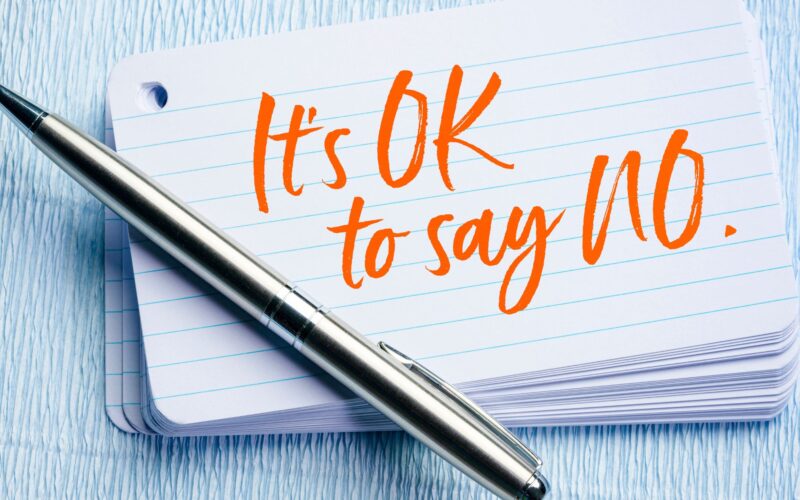By Tokiso TKay Nthebe
For years, I struggled with saying no.
I said yes when I was exhausted.
Yes, when I didn’t want to go.
Yes, when I should have paused and asked myself, “Why am I saying yes to this?”
And every time, I’d leave those spaces feeling depleted, resentful, and frustrated — not at others, but at myself.
The Truth About Saying No
Saying no doesn’t come naturally to everyone — especially for those of us who were conditioned to be available, helpful, and agreeable.
I loved being liked. I loved being seen. I was addicted to the validation that came with being the person people could rely on. Yet, that same desire to please left me drained and, often, disconnected from my own needs.
There were times I attended events I didn’t want to be at, took on projects that didn’t align with my values, and gave my energy to people who didn’t respect my time or boundaries.
My therapist and I unpacked this — the pattern of people-pleasing disguised as kindness.
She reminded me that protecting my energy doesn’t make me selfish; it makes me sustainable.
Setting Boundaries and Facing Rejection
One of the hardest lessons I’ve learned is that boundaries are only as strong as your willingness to enforce them.
As my friend and counselling psychologist Mpheng Thamae said in our TKO Money Adventures Podcast episode on financial boundaries:
“When you enforce your boundaries, you’ll likely experience rejection — and you have to be ready for that.”
That truth hit home.
Each “no” came with guilt and anxiety. My hands would shake. I’d worry about being misunderstood or labelled as difficult.
But here’s what I’ve learned — peace feels uncomfortable at first, especially when you’ve normalised chaos.
The moment I started saying no, people reacted. Some pulled away, others called me out for “changing.” But in that discomfort, I found clarity. I discovered that not every opportunity is my opportunity, and not every connection deserves access to my energy.
A Practical Guide to Protecting Your Energy
If you, too, find yourself overcommitted, resentful, or exhausted — start here.
1. Pause Before You Respond
When someone asks for your time or help, resist the urge to reply immediately. Try:
Let me think about it and get back to you. This gives you space to assess your energy, priorities and emotional capacity.
2. Check Your Motive
Ask yourself:
- Am I saying yes because I want to — or because I feel guilty?
- Does this align with my goals or drain my focus?
3. Create Your “Non-Negotiables”
Define what’s sacred — your rest days, morning routine, therapy sessions, or creative time. Protect them fiercely.
4. Learn the Graceful No
You can decline without being defensive. Try phrases like:
“Thank you for thinking of me, but I’m not available right now.”
“This doesn’t align with my priorities at the moment.”
5. Expect Discomfort — and Keep Going
Boundaries will challenge those who benefited from your lack of them. Stay firm. You’re not responsible for other people’s reactions.
6. Refill Your Cup
Do things that restore your peace — solitude, journaling, prayer, therapy, movement, or spending time with people who fill you back up.
Conclusion
Am I out of the woods?
Absolutely not!
But I am proud of the progress — proud of choosing peace over pressure, clarity over chaos, and alignment over approval.
If you’re reading this and constantly feel depleted or taken for granted, consider this your reminder:
Protecting your energy is not selfish — it’s sacred.
Say no when you must.
Say yes to what aligns.
And never apologise for choosing yourself.
Stay gentle with yourself, and stay trailblazing 💙










Your writing style is very engaging.
Thank you, the feedback is appreciated.